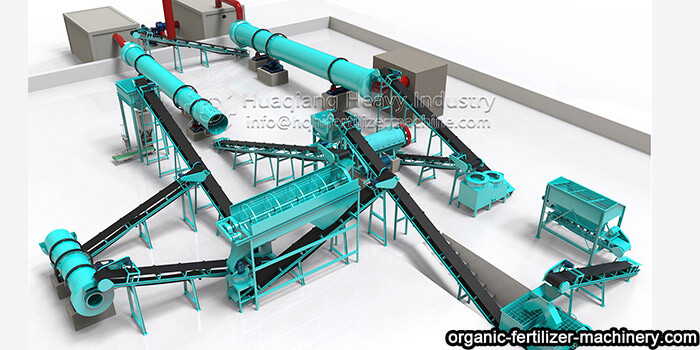When it comes to waste disposal, most people think of landfill or incineration, but few know that a bio-organic fertilizer production line can transform a lot of waste into "golden fertilizer" that nourishes the soil. It acts like a "waste converter," turning organic waste that pollutes the environment into bio-organic fertilizer that supports agricultural development.

A large amount of straw produced in agricultural production is a "frequent visitor" to the production line. After harvesting crops such as wheat, corn, and rice, the straw left behind, if burned indiscriminately, will pollute the air; if piled up in the open, it is prone to bacterial growth. Straw is rich in organic matter such as cellulose and hemicellulose. After pre-processing and crushing in the production line, and then combining it with other materials to adjust the carbon-nitrogen ratio, it becomes a high-quality raw material for microbial fermentation, ultimately transforming into organic fertilizer that improves soil structure.
Livestock and poultry manure is also an important target for the production line. With the large-scale development of the livestock industry, the discharge of manure such as pig, chicken, and cow manure is enormous. If discharged directly without treatment, it will pollute water bodies and soil. This manure contains rich nutrients such as nitrogen, phosphorus, and potassium, which are essential "nutrients" for crop growth. In the production line, after pretreatment such as impurity removal and drying using bio-organic fertilizer equipment, the waste is inoculated with beneficial microorganisms for high-temperature composting. This not only kills insect eggs and pathogens in the feces but also transforms the organic matter into nutrients easily absorbed by crops.
Some kitchen waste generated in daily life can also be "digested" by the production line. After removing non-biodegradable impurities such as plastic bags and glass bottles, leftover food, fruit peels, and vegetable leaves, rich in carbohydrates, proteins, and other organic components, enter the production line and undergo crushing and fermentation processes to be transformed into nutrient-rich organic fertilizer, achieving a "from table to field" cycle.
The bio-organic fertilizer production line not only solves the problem of waste pollution but also produces green and environmentally friendly fertilizer, providing strong support for sustainable agricultural development and truly realizing the value of "turning waste into treasure."